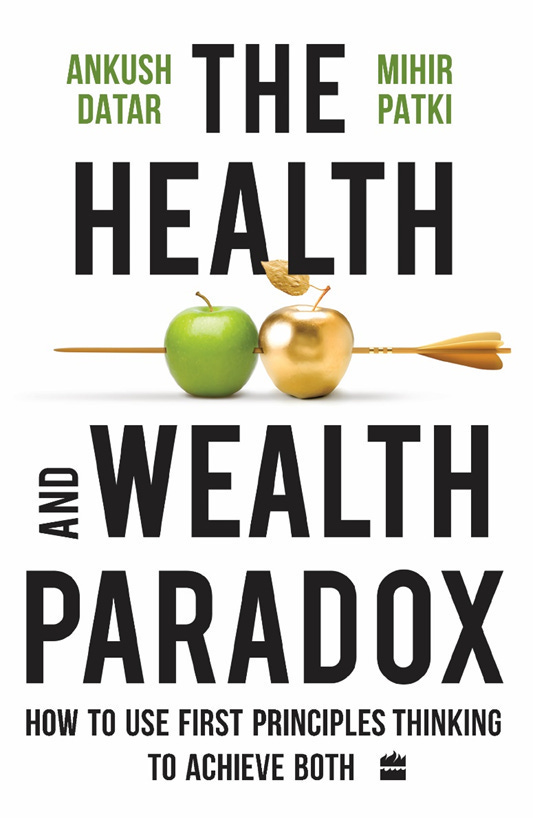We become the stories we tell ourselves.
Speak kindly to yourself so you can speak kindly to others.
Remember this moment from The Devil Wears Prada? (If you haven’t seen it, consider this your sign to go watch the movie)
Emily Blunt keeps repeating positive affirmations to reaffirm her identity after being constantly berated by her boss, Miranda Priestly, played by Meryl Streep.
She tries her best to abstain from negativity, but despite her efforts, the toxic environment begins to shape her, turning her into a reflection of that toxicity.
At rock bottom in her current job, her affirmations may have helped shift her psychological state by reprogramming her brain with positivity.
How often do you say either of these statements?
“I hate my job”
“I hate her”
“I hate writing”
“I hate working out”
“I hate eating healthy”
It’s amusing how, over time, we often fail to notice how the way we speak to ourselves shapes our perception of life.
"Do not speak negatively about yourself, even as a joke. Your body doesn’t know the difference. Change the way you speak about yourself, and you can change your life.”
The more I dwell on something and speak of it, the more power I give it. That’s why I strive to avoid speaking negatively as much as possible although sometimes it becomes difficult to control.
Nir Eyal, the author of Indistractable and Hooked, often draws attention to how small changes in language—such as using nouns instead of adjectives—can significantly impact behavior and self-perception. This concept is tied to psychological research about identity and motivation.
Nir frequently references studies showing that using nouns instead of adjectives can lead to more consistent and identity-driven actions. For instance:
Example from Voting Behavior:
A study found that people were more likely to vote when asked if they were a "voter" (noun) rather than if they were "voting" (adjective/verb). The noun "voter" aligns with identity, while the verb "voting" relates more to a single action. People are more motivated when their actions are tied to their sense of self.
Impact on Habits and Self-Image
By framing actions as part of one's identity through nouns, people are more likely to follow through. For example:
Saying, "I am a runner" (noun) instead of "I run" (adjective/verb) reinforces that running is part of who you are, not just something you do.
"I am an investor" feels more permanent and value-driven than "I invest."
James Clear, in Atomic Habits, emphasizes that true and lasting behavior change is rooted in identity change. He argues that to make habits stick, we need to shift our focus from what we want to achieve (outcomes) and how we achieve it (processes) to who we want to become (identity).
Outcomes vs. Identity-Based Habits
Most people focus on outcomes (e.g., "I want to lose 10 pounds") or processes (e.g., "I’ll go to the gym three times a week"). However, Clear argues that lasting change happens when you focus on identity: "I’m the kind of person who doesn’t miss workouts." By aligning your habits with the type of person you aspire to become, actions flow naturally from this identity.
The Two-Step Process to Identity Change
Decide the type of person you want to become.
Ask yourself: Who is the person who could achieve the outcomes I desire?
For example: Instead of focusing on "losing weight," think, "I want to become a healthy person."Prove it to yourself with small wins.
Every action you take is a vote for the person you want to become. Each time you make a healthy choice, you reinforce the belief that you’re a healthy person. Identity change is a gradual accumulation of these "votes."Identity Drives Behavior
Clear explains that behavior change is more sustainable when it stems from who you are. For example:A smoker trying to quit could say, "I’m trying to quit smoking" (action-focused) or "I’m not a smoker" (identity-focused).
The latter aligns with the identity of a non-smoker and is more likely to lead to success.
Your thoughts shape your reality, so be mindful of negativity—it can subtly evolve into your identity.
When you embrace a positive identity about yourself, good habits naturally flow from there.
Words literally carry energy; they cast spells—hence the term spelling. Transforming how you speak to yourself can profoundly shift your life.
One of the most influential papers by Carol Dweck and her colleagues is the Mueller & Dweck (1998) paper entitled Praise for Intelligence Can Undermine Children's Motivation and Performance summarizes the logic and science of this blog:
“This paper highlighted an important fact: a child who is praised for being ‘hardworking’ rather than being ‘smart’ saw much better results in their work, as their identity of being hardworking made them live up to it, which, in turn, made them better. Praising purely for smartness may lead to students slacking and becoming too dependent on natural ability rather than hard work.”
Conclusion
If you are looking for a New Year’s resolution, it should be to speak better to yourself.
Before imagining a better environment, life, or partner, start speaking well to yourself first.
The way you speak to yourself can shape your personality—and literally the chemical structure of your brain.
Relevant Reads from the blog:
There is always someone better than you
Order my debut book on Amazon today:







Amazing article Ankush!